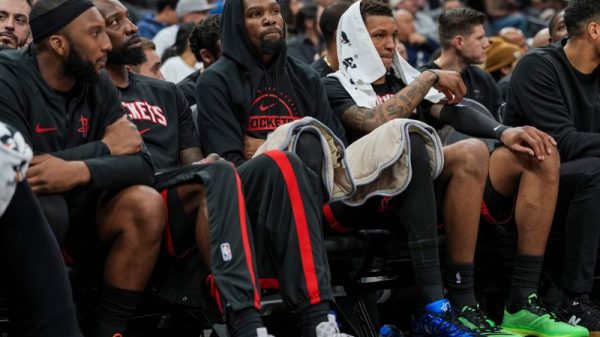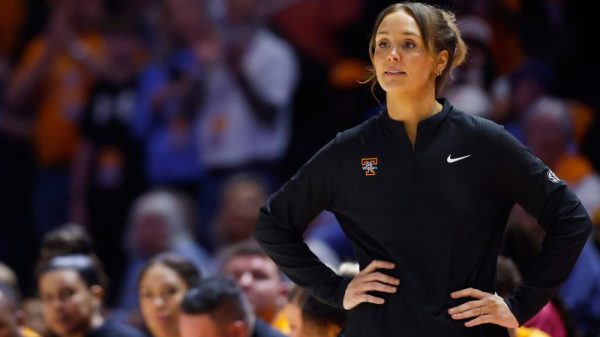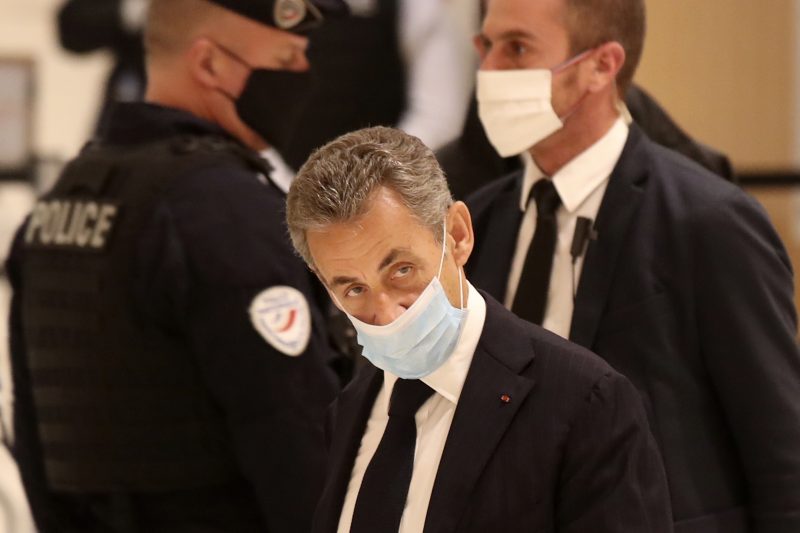Rep. Andy Biggs (R-Ariz.) is one of Donald Trump’s most stalwart defenders in Congress. He supported Trump’s efforts to retain power despite his loss in the 2020 presidential election, to the extent that he refused to comply with a subpoena from the House select committee investigating the ensuing Jan. 6, 2021, riot at the Capitol. The committee later recommended that he face an ethics investigation.
Given both his loyalty to the former president and his demonstrated antipathy to the mechanics of democracy, it’s not surprising that he would rush to Trump’s defense as the specter of a possible indictment looms. In a tweet published over the weekend, Biggs suggested that potential prosecutions like the one Trump faces “only occur in third world authoritarian nations.”
If they can come for Trump, they will come for you.
This type of stuff only occurs in third world authoritarian nations.
— Rep Andy Biggs (@RepAndyBiggsAZ) March 18, 2023
That is very much not the case.
We can begin in France, which is neither a “third world” nor authoritarian nation. It is a modern, developed democracy. And, in the past decade, multiple former political leaders have been convicted on charges of corruption.
In June 2020, it was former prime minister François Fillon, once a leading contender for the country’s presidency. Less than a year later, it was former president Nicolas Sarkozy’s turn. In each case, mirroring Trump and his allies, supporters of the convicted men argued that the investigations into them had been politically motivated or tainted by politics — if nothing else establishing that casting probes as political is what happens in developed democracies.
France isn’t unique. José Sócrates, former prime minister of Portugal, was indicted and jailed on corruption charges in 2015. In early 2021, some — but not all — of the charges were dropped. Farther east, former Italian prime minister Silvio Berlusconi has faced numerous indictments for both official and private alleged transgressions (to understate things a bit).
Former Croatian prime minister Ivo Sanader was sentenced to prison in 2020 on a corruption conviction. (When the coronavirus pandemic was raging, Britain’s then-prime minister, Boris Johnson, and finance minister Rishi Sunak — now prime minister — were fined for breaking pandemic restrictions, as was Norway’s then-prime minister, Erna Solberg. But that’s not quite the same thing.)
Multiple Israeli prime ministers have faced corruption probes. Ehud Olmert was sentenced to 18 months for bribery in 2015. Benjamin Netanyahu — once again the country’s prime minister — has been on trial for several years after being indicted on multiple charges.
In Germany, former president Christian Wulff was tried on corruption charges and cleared, a reminder that indictment is only one step of the process. Spanish Prime Minister Mariano Rajoy stepped down in 2018 as a corruption scandal swirled around his party. Austrian Chancellor Sebastian Kurz faced a corruption inquiry of his own but opted to step down. He took a job working for Trump ally Peter Thiel.
There were, of course, two times when Trump faced political censure: his two impeachments. In both 2020 and 2021, Trump was impeached by the House but not convicted by the Senate even though a majority of senators opted to convict in the second trial — because the Senate mandates a two-thirds standard for conviction and Republican senators sided with Trump. The failure to convict became fodder for Trump to argue that both impeachments were politically motivated rather than reflections of any culpability.
What separates Trump’s situation from circumstances in other Western democracies, in fact, isn’t that he is uniquely subject to criminal scrutiny. It’s that he has so far managed to avoid political or legal repercussions despite viable arguments that he violated campaign finance laws to cover up an affair before the 2016 election, obstructed an investigation into his campaign, attempted to leverage his position to benefit his reelection bid, deployed multiple efforts to undermine his election loss in 2020 and caused the violent attack on the Capitol on Jan. 6, 2021.
In large part, this is a function of the nature of American politics: In countries with prime ministers, selected as a function of party control of legislatures, there is less personal investment from voters in particular leaders. Trump has benefited from contesting for primacy with the Republican Party itself, building a base of loyal support that other Republicans fret about upsetting. Hence his acquittals in the two Senate trials. He also benefited as president from prohibitions on criminally charging a sitting chief executive.
It is not clear yet whether Trump will face criminal indictment in New York or Georgia. If he does, there is no guarantee that he will face trial, much less be convicted. But what the current debate does remind us is that other developed democracies have actual mechanisms for adjudicating criminal culpability for elected leaders that within the United States would seem exceptional.
The mantra of Trump and his allies, though, is that he is being uniquely targeted by out-of-control, anti-democratic actors. Without any charges actually filed, it’s hard to evaluate the argument that any indictment is a contrived effort to punish Trump. But there is plenty of precedent for mature democracies to hold elected leaders to account; in fact, it would seem to be an important element of them.



























